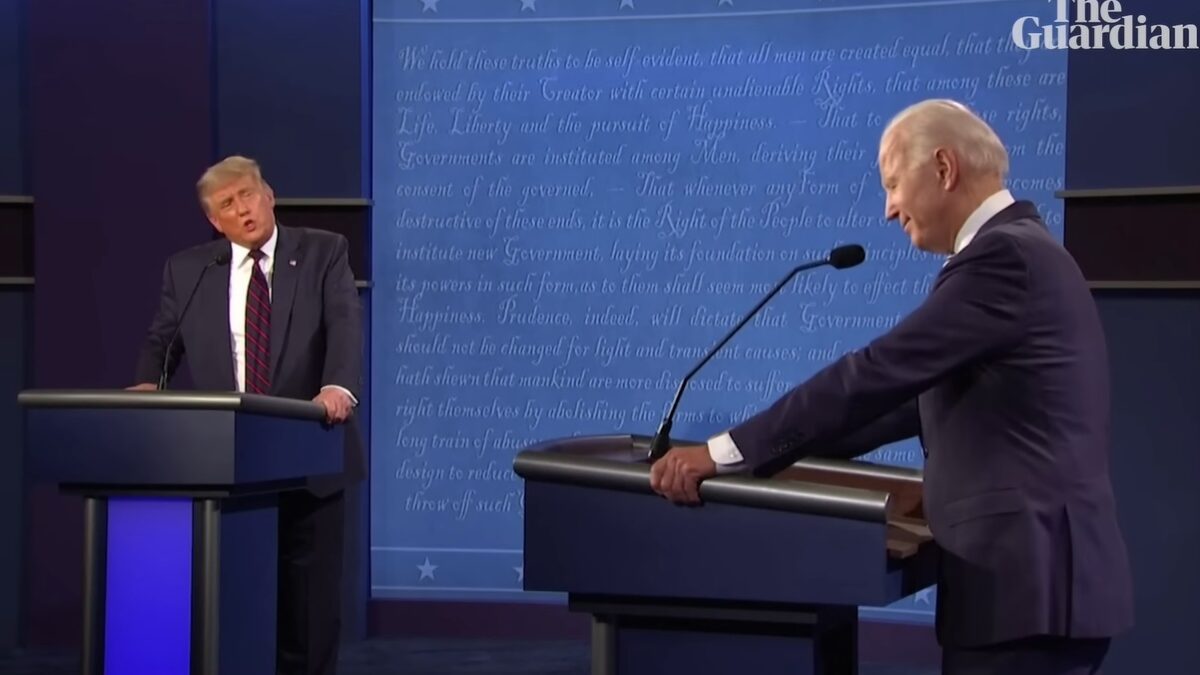
In case you haven’t noticed, our president is a fascist. So are his supporters and advisors. If you don’t agree Trump is a fascist, you’re a fascist. If you voted for Trump, for whatever reason, and don’t regret it now, you’re a fascist. If you’re not sure whether Trump is a fascist, and refuse to demonstrate against his fascist administration, you’re a fascist.
That’s what the Left is saying, anyway. One can hardly read progressive commentators (or commenters) without stumbling over the word. Over the weekend, a column I wrote for The Guardian ran under the headline, “Trump is no fascist. He is a champion for the forgotten millions.” Of course, I didn’t write the headline, and the piece itself is more concerned with explaining how Trump’s election was a revolt against our political elites.
But the response was telling. Many readers insisted that yes, Trump is indeed a fascist and anyone who can’t see that is a fool—or worse. Among professional pundits, the argument is more refined but more or less the same: Trump is a nationalist who’s obsessed with national security, he has disdain for the media, he’s sexist, bullish on law and order, wants to build up the military and tighten immigration laws. Therefore, Trump is a fascist.
Sorry, but none of that makes Trump a fascist. Progressives are no doubt thinking of Hitler and Mussolini, but in fact they’re using “fascist” in the way George Orwell described it in “The Politics of the English Language,” merely to signify “something not desirable.”
Fascism Actually Means Something
But fascism isn’t just an abstract word that can stand in for anything you dislike. The term has an infamous history that all Americans should know about, especially since so many of us are so fond of throwing the term around lately.
As a political movement, fascism in Europe had distinct characteristics—expansionist nationalism, extreme militarism, a conception of the National Socialist as a “new man” for whom politics is above all a spiritual struggle. They took the trappings of militarism seriously, to the point that fascist leaders would typically dress in military uniforms, as would their rank and file.
When they weren’t in power, fascists would organize into paramilitary units—complete with uniforms, like Hitler’s brownshirts and Mussolini’s blackshirts—and disrupt the authority of the government. “We do not enter parliament to use parliamentary methods,” wrote Joseph Goebbels in a 1929 propaganda pamphlet. Indeed, after the Nazis gained 95 seats in the 1930 elections, they would routinely disrupt proceedings in the German Reichstag by shouting down speakers, throwing debris from balconies, and generally raising hell. They held only 107 of 577 seats, but they were determined to undermine democracy in Germany—and they did.
Once in power, fascists overwhelmed democratic institutions and consolidated the power of the state in the party. A year after the 1922 March on Rome that put Mussolini in power, he passed the Acerbo Law, which guaranteed a two-thirds parliamentary majority to the party that managed to secure 25 percent of the vote. The law effectively ensured Mussolini could rule as a dictator. Two years later, public meetings of opposition parties were banned, and eventually all rival political parties and newspapers were banned in Italy.
In 1932, Mussolini wrote an entry on the definition of fascism for the Italian Encyclopedia: “The foundation of Fascism is the conception of the State, its character, its duty, and its aim. Fascism conceives of the State as an absolute, in comparison with which all individuals or groups are relative, only to be conceived of in their relation to the State.”
Misusing ‘Fascist’ Corrupts Our Language
Trump shares none of these characteristics. He might be a bully, a cynic, and a misogynist. His statement to Bill O’Reilly over the weekend drawing a moral equivalency between the United State and Russia was disgraceful and idiotic. His casual comment about destroying the career of a Texas state senator who wants to reform civil-asset forfeiture laws was thuggish and disturbing. He incessant tweeting is irritating and foolish and needs to stop.
But Trump’s not a fascist, and nothing he’s done since taking office suggests he’s setting America on the path to a fascist dictatorship.
The corruption of “fascist” is but one example of the pernicious habit of sloppy thinking that’s plaguing our public life. Dropping the term from our political discourse when it doesn’t apply is an important step, but it should be just the beginning. Words are ideas, after all, and ideas have consequences. The mishandling of “fascist” and other such terms will, in time, cause us to lose grip of their meaning, which would be dangerous.
In the meantime, it should suffice to stop calling Trump a fascist and recognize, as Orwell did, “that the present political chaos is connected with the decay of language, and that one can probably bring about some improvement by starting at the verbal end.”







